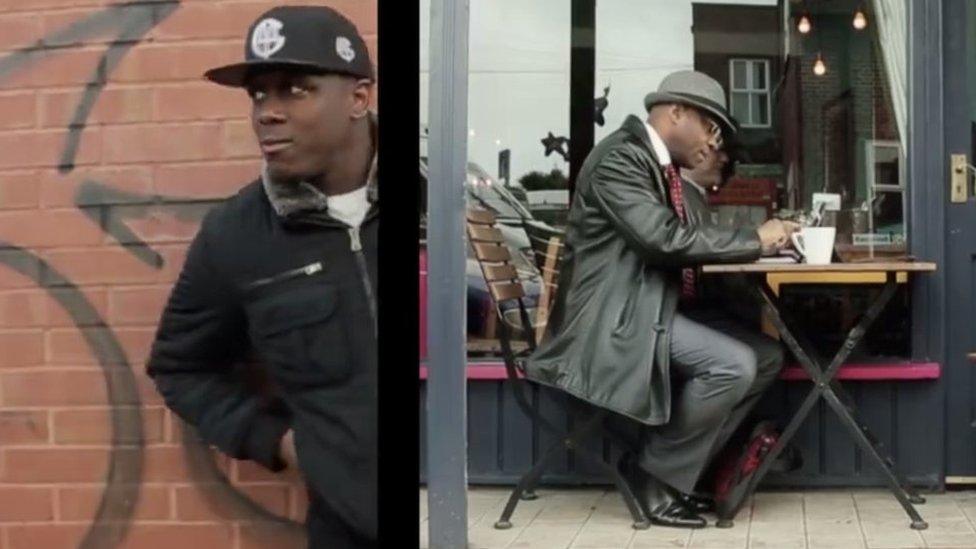Young drug dealers in Bristol offered free driving lessons
- Published
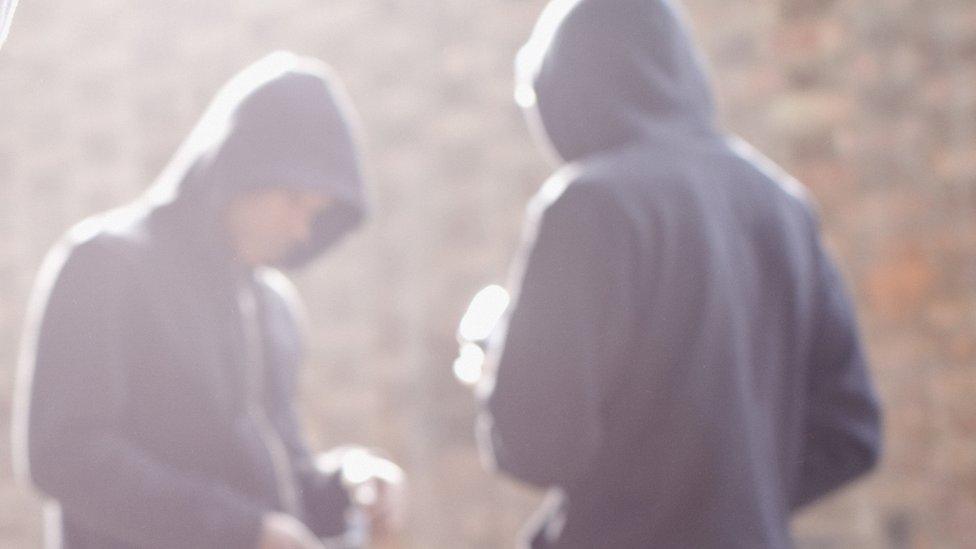
Participants must be aged 16-21 and not have committed violent or sexual crimes
Young drug dealers are being offered career opportunities, boxing sessions and driving lessons in a bid to end the "revolving door" of reoffending.
Offenders are given training instead of facing court but participants suspected of crimes while on the scheme would be charged, police said.
The Call-In scheme has been launched as a pilot in Bristol.
The Home Office said operational decisions lay with chief constables but "we expect them to enforce the law".
Drug convictions in England and Wales dropped slightly in 2018 to 67,831 from 75,695 in 2017. They were at their highest in recent times in 2012 at more than 98,000 in a year.
Det Supt Gary Haskins said police wanted to "take a chance" with young dealers before they became one of these statistics.
He admitted there was a risk they could reoffend during the mandatory six-to-nine months but said it was a risk Avon and Somerset Police was willing to take.
Sessions offered during the Call-In scheme, which has funding from Bristol City Council, include non-contact boxing to look at fitness and anger management and a course with Street2Boardroom, which aims to help people to apply "the hustle" they have learned on the street to legitimate business.
Mr Haskins said the scheme also helped people to get the necessary paperwork and qualifications to work in the construction industry, provided driving lessons and if appropriate, English lessons.
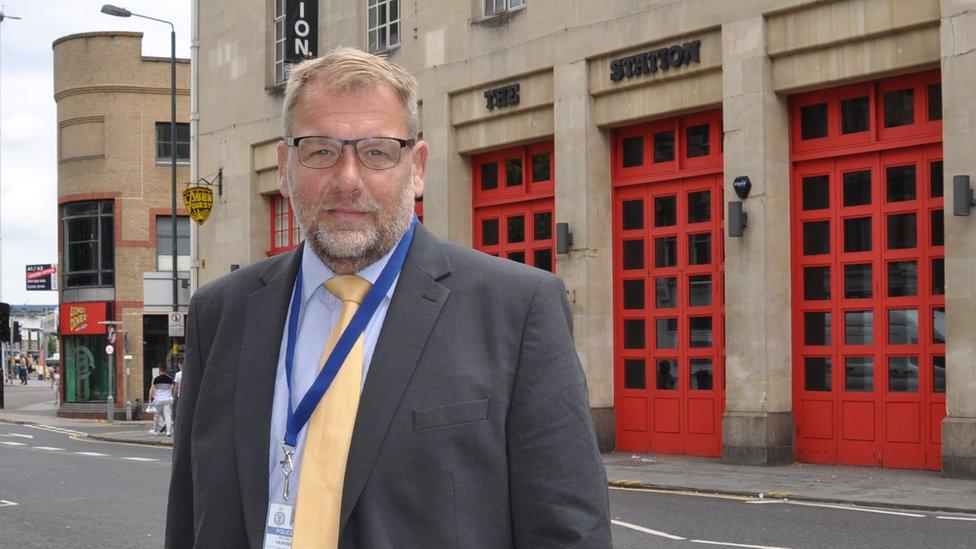
Det Supt Gary Haskins said the Call-In looked at options to divert young people from a life of crime
A Home Office spokesperson said: "How police choose to pursue investigations is an operational decision for chief constables.
"We must prevent drug use in our communities and support people dependent on drugs through treatment and recovery."
The police told the BBC one person on the Call-In scheme had been removed and charged with dealing class A drugs. He will appear in Bristol Magistrates' Court in September.
Another has been removed after being found in possession of a weapon.

Potential jail terms for drug dealing
Class A, including crack cocaine, cocaine, ecstasy (MDMA), heroin and LSD - up to life in prison, an unlimited fine or both
Class B, including Amphetamines, cannabis and ketamine - up to 14 years in prison, an unlimited fine or both
Class C, including anabolic steroids, benzodiazepines and khat - up to 14 years in prison, an unlimited fine or both

Bristol City councillor and Deputy Mayor Asher Craig acknowledged the city has a growing issue with gang-related crime and said the Call-In scheme "reaches out to young people involved in criminal activity and aims to turn their lives around for the better".
"It offers the chance to intervene early and help young people get the mentoring and support they need to escape the downward cycle of drug related crime.
"The Call-In scheme is a pioneering partnership initiative based on a successful youth project in America. The scheme allows us to work closely with our partners to establish the best course of action for each individual.
"Through this, we can help young offenders discover a life free from drugs by providing the help they need to attain employment and learn vital life skills while reducing the amount of crime experienced by our communities."
Participants are chosen by a panel, must be aged between 16 and 21 and not have any convictions for sexual or violent offences.
The first selected candidates began in February and up to 16 people will take part.
Bristol has a high proportion of people who inject drugs in comparison with other similar areas, and the highest number of people in treatment in England who are users of both crack cocaine and heroin, external.
'One mistake'
Mr Haskins said other UK forces had tried similar sorts of schemes "with varying degrees of success," but the Call-In was different because it gave young offenders a chance to stop and think before choosing to continue with a life of crime.
He said: "We're quite strict around it. We've had a good look at it, this is normally for people that have made that one mistake and people we think we can work with."
Once selected for the Call-In, participants are assessed by a panel who look at how to practically divert them from criminality.
"Why not give them a chance? What is there to lose? We send them to prison and we'll see them again," said Mr Haskins.
Former gang member Clinton Wilson helping young people to avoid a life of crime
A supporter of the scheme is former drug dealer Clinton Wilson, AKA King Aggi, who was at one time the leader of one of Bristol's most notorious gangs - the Aggi Crew.
The group of friends from east Bristol grew up to become violent and dangerous criminals, using guns to enforce their hold on Bristol's drugs market.
Now 43, he served most of his 20s and early 30s behind bars before leaving prison six years ago. He is now working with Street2Boardroom.
"When I see them making silly mistakes obviously I want to tell them 'if you carry on doing that, this is where you're going to go'," he said.
Mr Wilson grew up in St Pauls and said, after a good upbringing, at 15 he chose the "wrong path", lured by the money that could be made dealing drugs.
Of the offenders he met in prison, he said many were "good, loving, caring, intelligent - people who can do anything".
"They just went down the wrong thing for a minute and it all went wrong," he said.
"But once they've been to jail, they ain't getting them same opportunities when they come out again."
He said police needed to concentrate on "the worst ones" rather than those who were "half-hearted" about a life of crime.
"If they're not cut out for it, they'll soon get taken out of the game anyway," he said. "It's the ones that are cut out for it…"
The Call-In and Clinton Wilson both feature in Beyond the Front Line which airs on BBC One in the West at 23:15 BST on Wednesday 28 August and on the BBC News Channel at 21:30 BST on Friday 30 August.
- Published3 August 2019
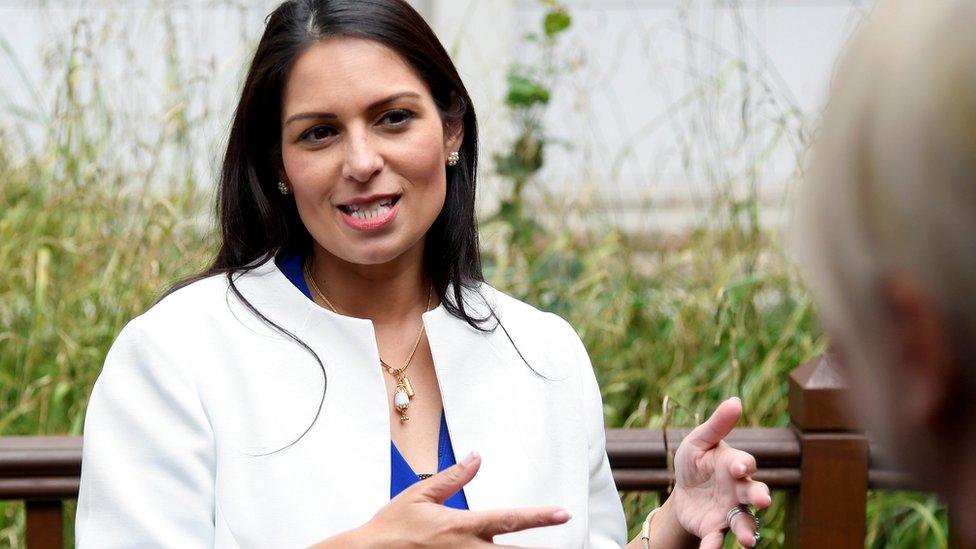
- Published17 June 2019
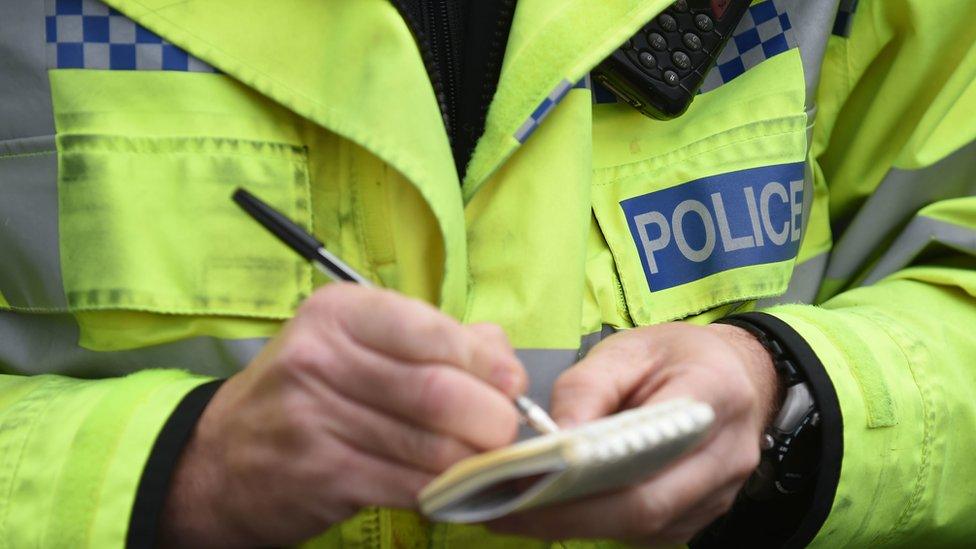
- Published12 September 2018
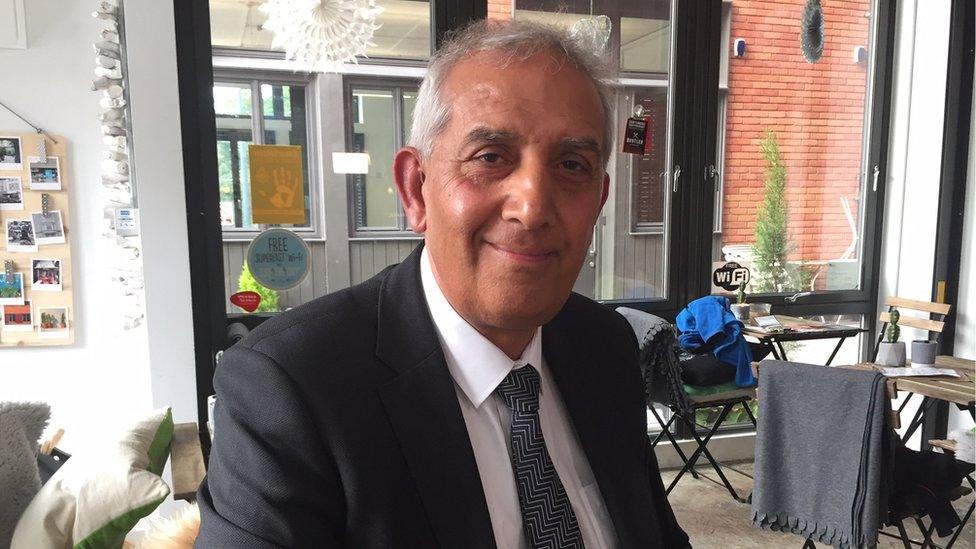
- Published14 August 2018
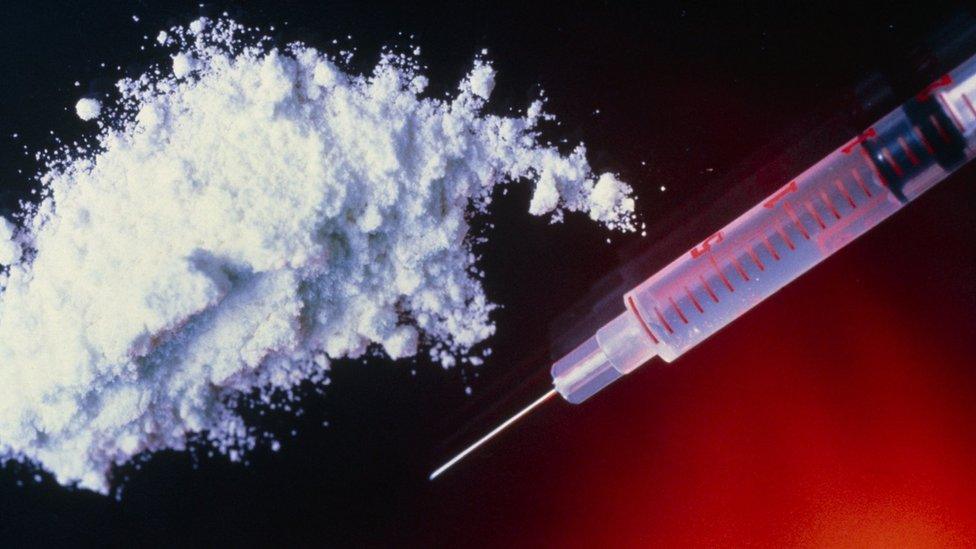
- Published20 March 2018
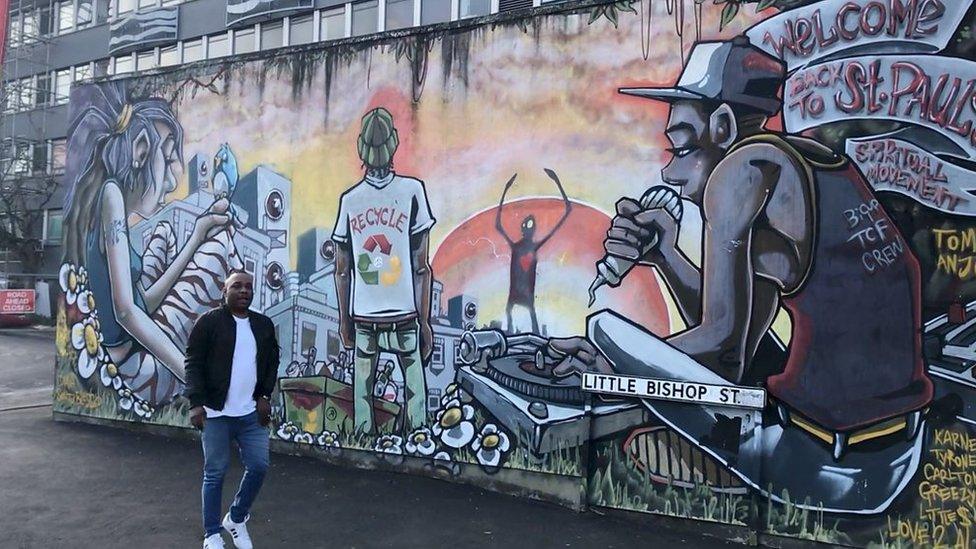
- Published6 February 2018
- Published8 September 2017
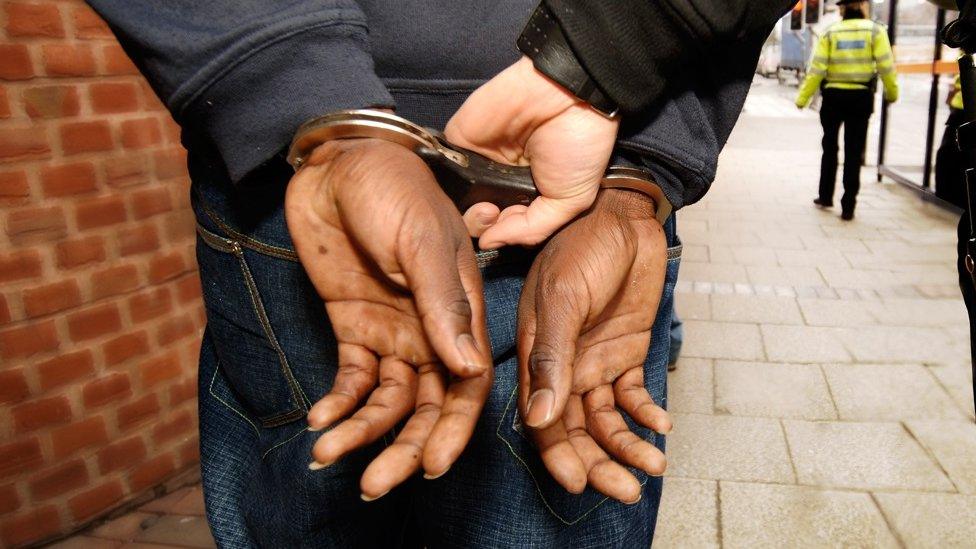
- Published30 August 2016
